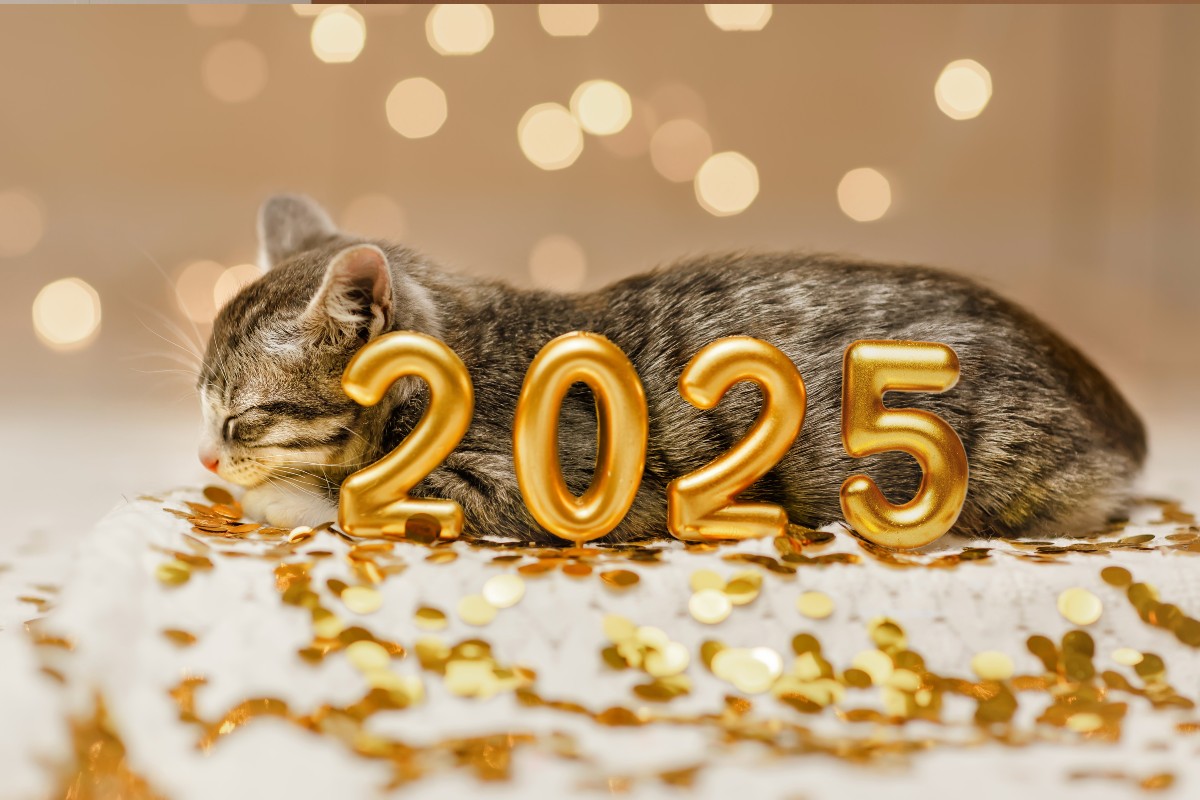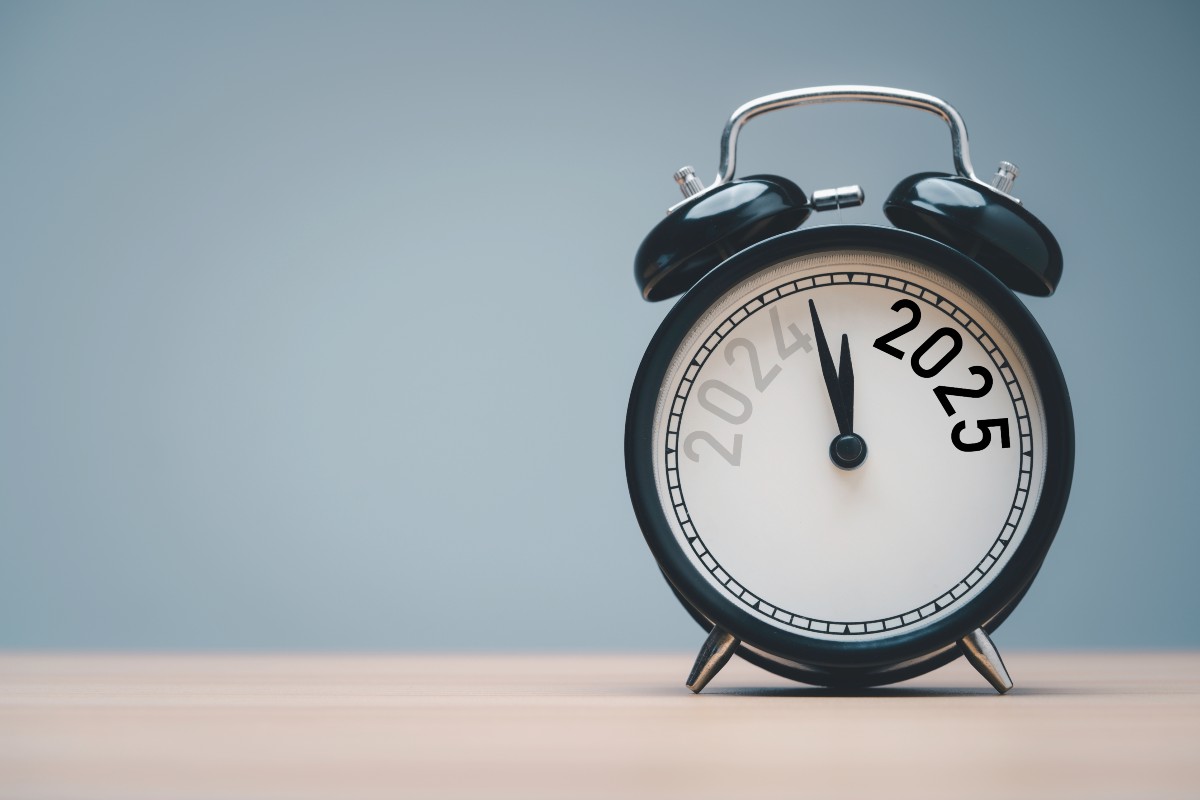
Getting More Sleep Tops Brits’ New Year’s Resolutions List This January
Many of us adopt a “New Year, New Me” approach when January draws near. After the chaos of Christmas, we often want to step back and prioritise ourselves. That could include exercising more, taking up a new hobby, booking that once-in-a-lifetime trip or simply looking after our health and wellbeing.
Well, move over weight loss and Dry January, it appears that 2025 is the year to focus on sleep. Our recent survey found half of UK adults cite getting more sleep as their top New Year's resolution, far outpacing the 29% pledging to lose weight and the 24% aiming to get fitter.
Sleep & health for the new year

As more and more of us look for health and wellness tips for the new year, we’re learning about sleep’s critical role in our overall well-being. Given how quality sleep is foundational for achieving other goals, it’s one of the best New Year’s resolutions for health you can make.
Our findings point to a nation grappling with a chronic lack of sleep, with 6 in 10 (63%) adults saying they wake up feeling shattered, averaging just 5.6 hours of sleep per night. That’s way below the 7-9 hours we should be getting.
Our Resident sleep expert, Dr Sophie Bostock, explains:
“Research shows that getting 7 or more hours of good quality sleep not only protects our physical health but also supports our mental health, relationships and productivity. It’s really encouraging to hear that so many people are prioritising sleep this January. I hope that these are resolutions that will last the entire year.”
Brits Are Search For Sleep Advice in January
Google searches for “why can’t I sleep” peak during the first week of January, as we undertake a collective post-holiday reckoning with our poor sleep habits and New Year wellbeing.
If you’re adopting a “New Year, New You” mantra, sleep is a great place to start.
Whether it’s excited kids waking parents up at 5am on the big day, those late-night parties stealing our sleep, or rich food and drink sitting heavily, the effects of poor sleep can add up. 44% of our survey respondents admit they couldn’t fully switch off from work during Christmas, while over half (54%) say they needed a holiday just to recover from the festive fun!
This sleep deprivation is taking a toll, with 58% of Brits waking up feeling anxious about the day ahead and 43% citing work worries as a barrier to rest. January’s return to the office is never far from our thoughts, with 46% of Brits daunted by the prospect.
Dr Sophie Bostock added:
“The links between sleep and mental health are bidirectional. Poor sleep worsens anxiety, but positively, prioritising sleep reduces the risks of common mental health disorders. The emphasis we’re placing on sleep-focused resolutions isn’t just a trend—it’s a recognition of sleep’s transformative impact on mental health, productivity, and quality of life. This shift toward prioritising rest reflects a growing awareness that the key to achieving more may start with doing less.”
Sleep Health And Wellness Tips For The New Year
Getting more sleep is such an important New Year’s resolution for Brits in 2025. So what are Dr Sophie’s tips for designing a winning sleep resolution this January and avoiding the effects of poor sleep?
Here’s how to prioritise your sleep health for the new year.
1. Brainstorm all the habits that you could change to improve your sleep timing or quality.
What has been a challenge in 2024? What’s been sabotaging your sleep? If you were advising your best friend to improve their sleep, what would you say?
Start with a long list and reduce it later. Popular New Year's resolutions for sleep might be less scrolling late at night, drinking less caffeine, waking up at the same time (even at the weekend), eating earlier in the evening, or sticking to a bedtime routine.
2. How can you make it easy?
To adopt a new sleep habit, it needs to be something easy to do which could have a meaningful impact on your sleep.
When we’re tired, even small changes might feel overwhelming, so the easiest way of making that change could be instead of giving up caffeine entirely, try only buying decaf coffee to keep at home, or stop drinking caffeinated drinks from midday onwards.
3. How can you remind yourself to make the change?
The most common reason that our New Year’s resolutions fail is that we forget about them.
How will you remind yourself to stick to this new habit? You could try setting a reminder on your phone or enlisting a partner or close friend to make the change with you.
For example, if you want to stop scrolling in bed, try to get the whole family to leave their phones in the kitchen overnight – all set an alarm at 9pm and remind each other that it’s time to switch off.
4. Track the impact
Wearable sleep trackers and smartwatches are increasingly popular, but if Santa didn’t bring you one this Christmas, printing out a sleep diary and monitoring your habits manually is another great way to measure the impact of your changes. When we see positive change, we’re often more motivated to keep going.
5. Celebrate success
Feeling positive when you’ve completed your new habit is the key to repetition. Every time you repeat the desired behaviour, tick it off on your sleep diary and allow yourself a congratulatory smile. Perhaps you could treat yourselves to something special at the end of each week when you’ve met your habit goals?
6. Invest in your bedroom
A tired old mattress or rickety bed frame is never going to help you get better sleep. Investing in a supportive and comfortable bed and mattress can make a world of difference to your sleep quality.
For more advice on sleeping better, visit our Sleep Hub for tons of expert advice and handy tips to help you drift off. Make 2025 the year you prioritise your sleep and reap the health and wellness benefits of doing so!

Gemma Henry - Content Lead
Gemma finds sleep fascinating and describes the discovery aspect of her role as eye-opening. Her keen eye for detail and dedication to thorough research ensures that Bensons customers get the informative sleep-based advice they're looking for.